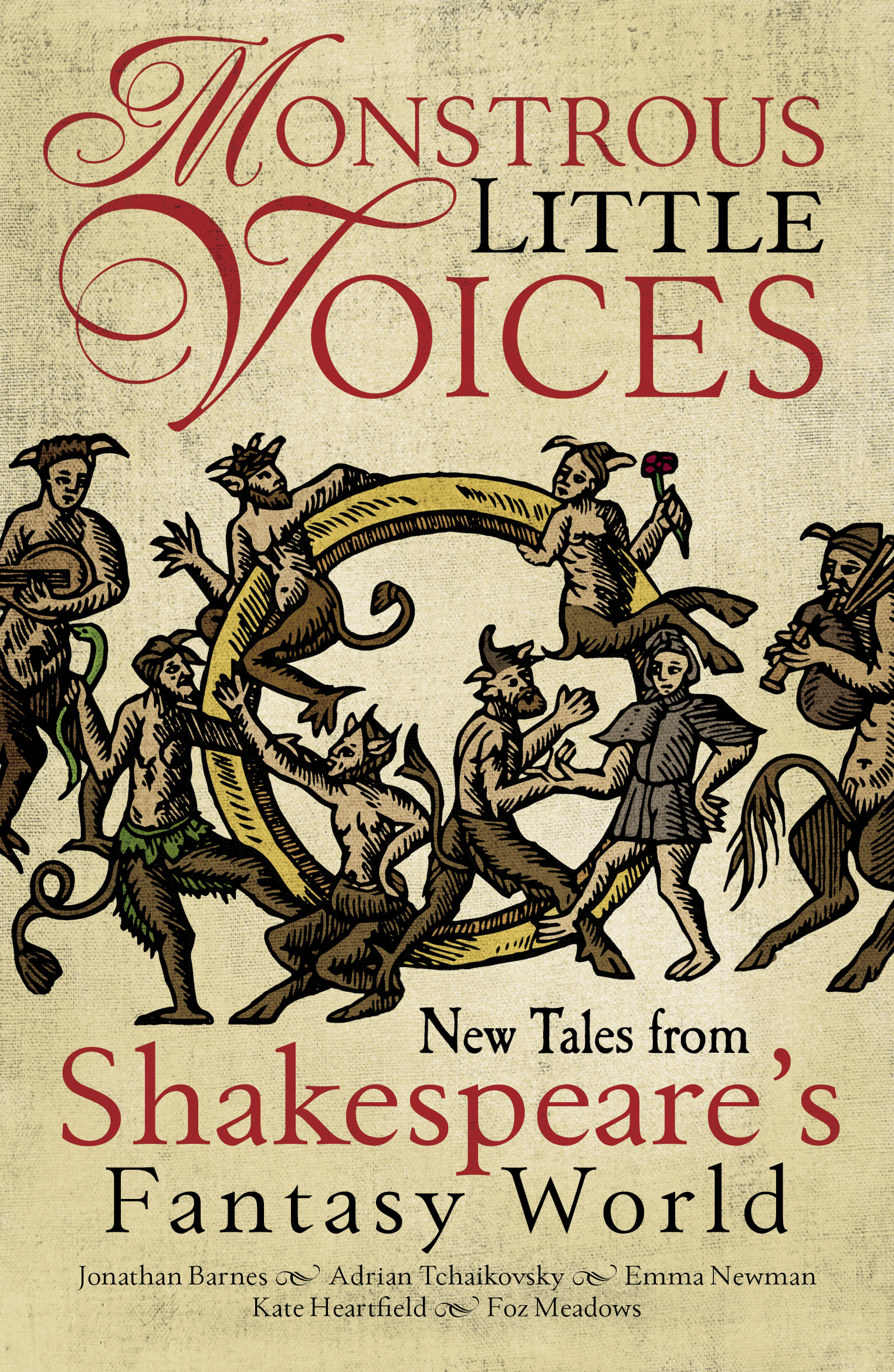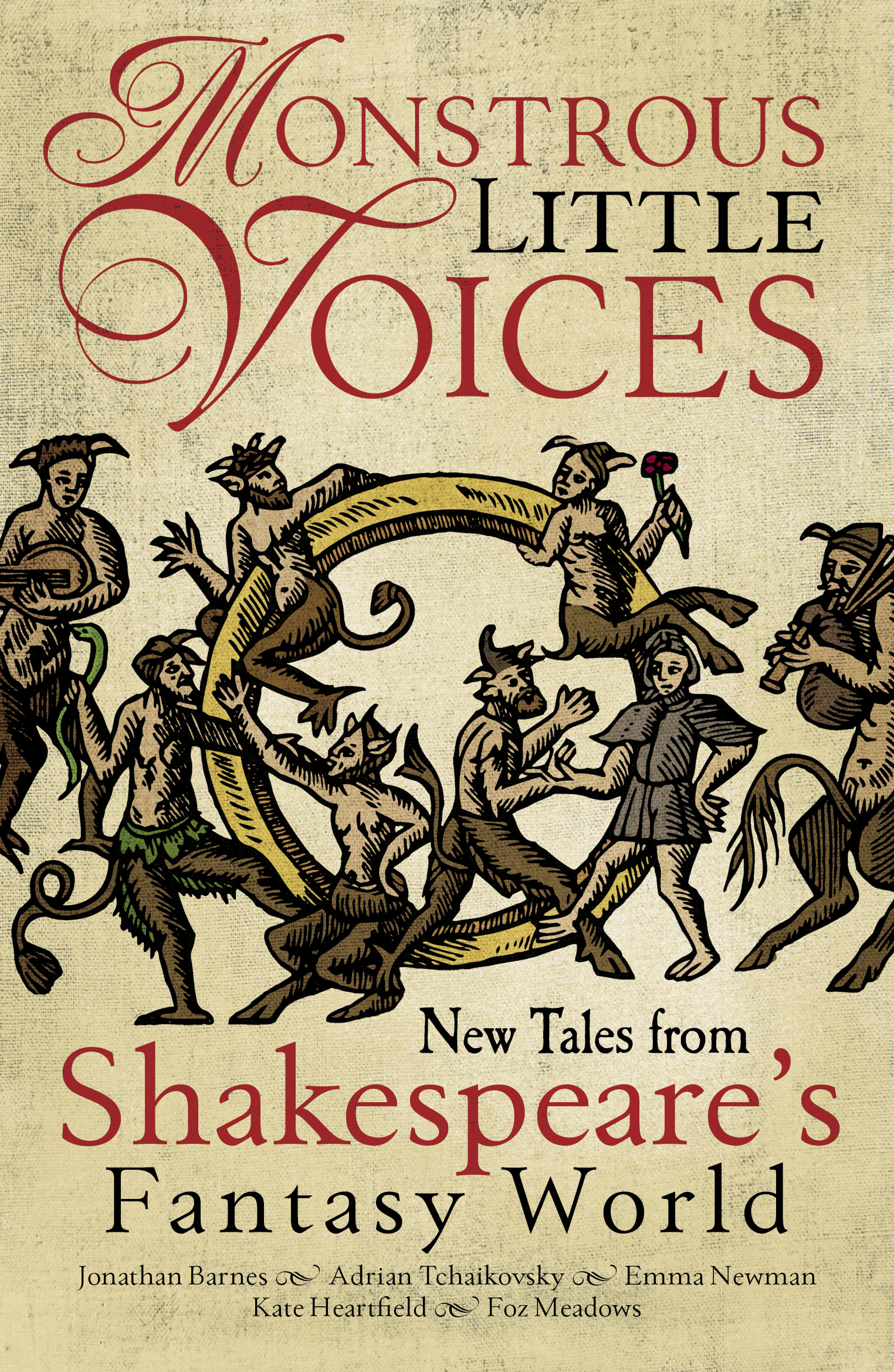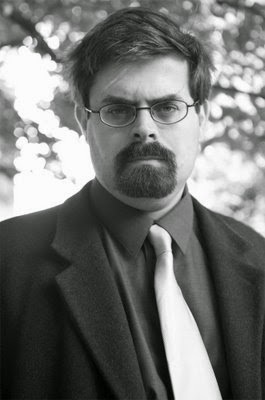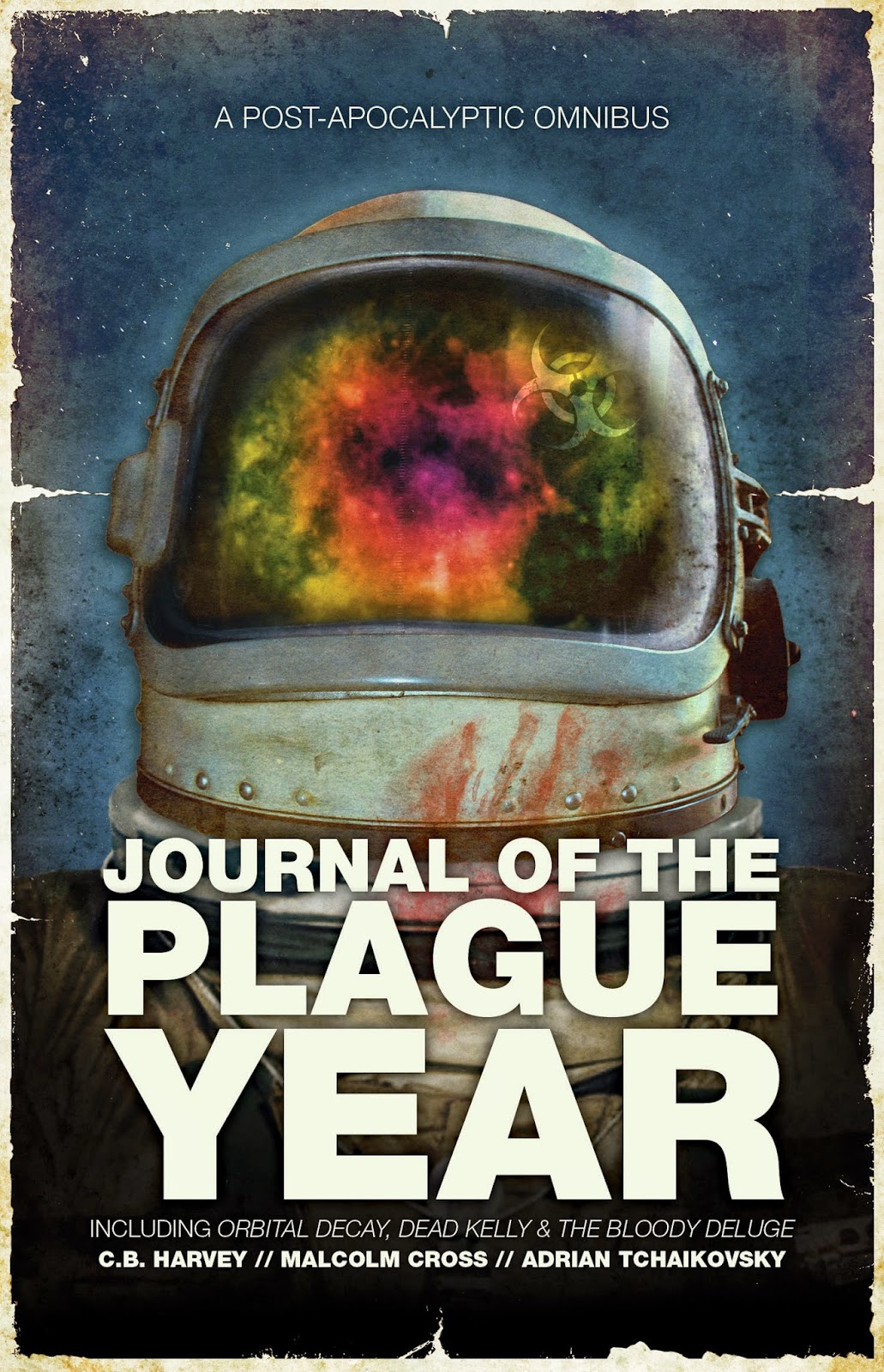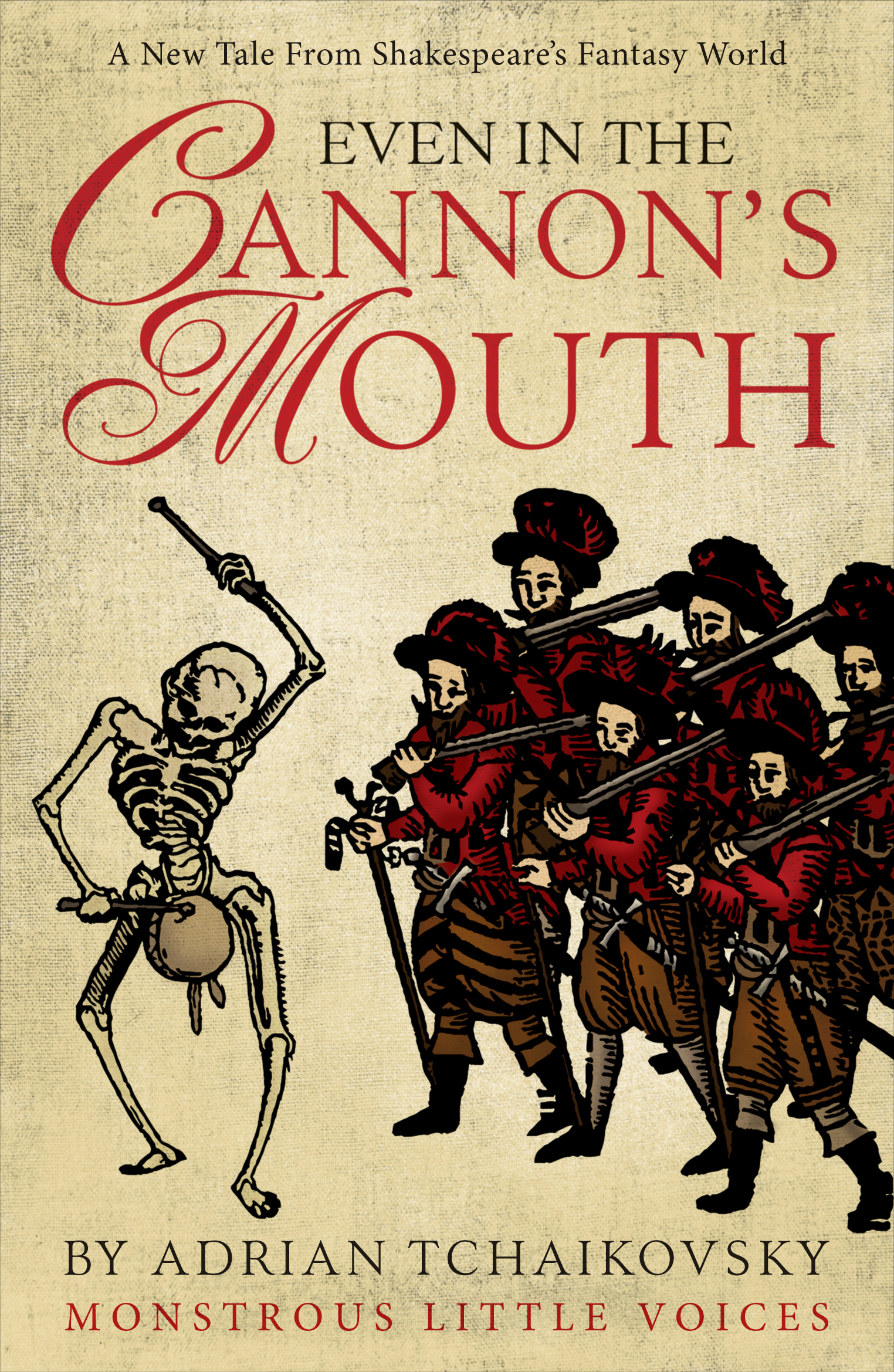
To celebrate the release of Montrous Little Voices, we asked Dr John Lavagnino from King’s College – who has written an excellent afterword for our fantastical Shakespearean anthology – for a few questions for the authors.
Here’s Adrian Tchaikovsky on his contribution, Even in the Cannon’s Mouth…
JL: It looks hard to fit things from a lot of different plays together this way! Was it?
AT: The weird thing was that, no, it worked really well, even when I started throwing some tragedy characters into the mix. So I’ve got characters from four comedies and Macbeth, for heaven’s sake, and I’ve done my best to preserve their personalities as written (or at least to extrapolate where they might go after their original curtain call) but it turns out it’s really easy to make a functioning adventuring party using Shakespearean cast-offs like Benedick from Much Ado or Parolles from Alls Well.
JL: What did you discover or notice about Shakespeare’s works in the course of doing this? And about your own?
AT: I have always been deeply into Shakespeare, especially as works that can be reinvented. I’ve acted in plenty of Shakespeares (I’ve even played one of the characters I’m borrowing for the novella – he gets no special treatment), and I’ve directed a few as well. I guess the surprising thing, given that most of his plays are finely crafted composite pieces, is how modular they turn out to be – kind of literary Lego. Obviously the initial brief was based on the idea that you can work many of the plays into a single coherent world, and there is a kind of continuity of tone with a lot of the comedies so that if Viola turned up in breeches in the middle of As You Like It, for example, she’d fit right in. For my own work, I’ve been pleased with how a heroic fantasy writer’s sensibilities have meshed with the Shakespearean setting. There is definitely a fantasy plot going on with Even in the Cannon’s Mouth, but it is turned upside down so that it functions like a comedy. And I might just have given a shout out to a few fantasy standards within the Shakespeare.
JL: Which character was most rewarding to write about?
AT: I have a soft spot for Parolles. He is a horrible person in All’s Well that Ends Well – Shakepeare’s take on the Miles Gloriosus braggart soldier. It’s not a well known play, and it is insanely problematic for reasons not related to Parolles (the ‘happy ending’ of Helena and Bertram is just… ghastly. It works, but only if you assume that they’re both dreadfully flawed people), but it has some of Shakespeare’s funniest scenes, and Parolles, liar, coward and self-promoter, can be a surprisingly nuanced character. He has some very subtle scenes with Helena where he can come over as lewd and shallow, or he can be played as a man utterly lost to the ideal of vacuous machismo showing he has finer feelings buried in there. I’ve put in shout outs to a lot of Parolles’s original scenes (which work especially because he frankly won’t ever learn from his mistakes), and he even gets to save the day, just a little.
JL: What characters or places were you going to include but had to leave out?
AT: Originally I was going to do something relating to the Tempest, which is one of Shakespeare’s three plays that include a character who is my namesake. Adrian in that work is a minor courtier, one of a pair who have a handful of lines and are usually cut in performance. I wanted to do something with them, but it never quite came together. The other play I had to omit is one of my favourites, Measure for Measure. The villain of that play is Angelo, a spectacular hypocrite it would have been fun to play with, and there is a fun supporting cast of vagabonds and ne’erdowells who would have given a nice ‘thieves’ guild’ fantasy feel to proceedings.
JL: Do you think you’ll do more writing of this kind? building on Shakespeare or perhaps on other writing?
AT: Weirdly I’ve had a second Shakespeare commission after handing in Cannon, which was a Shakespeare/Cthulhu short for Jonathan Green. I’ve also written a story about travelling players for Newcon Press, so this seems to have kicked off a whole load of theatrical business in my writing. I’ve also unearthed something I did for my writing group a couple of years ago, which was a cod Shakespeare play called Miranda’s Republic, and I might stick that up on my website when the novella is released.
Even in the Cannon’s Mouth is out now!
BUY: UK|US|eBOOK
